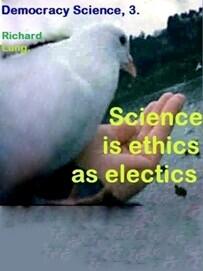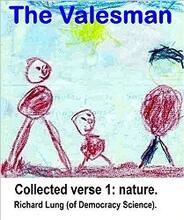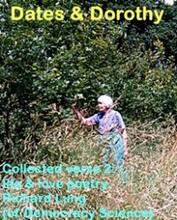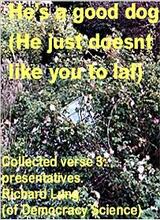A universe, by definition independent, implies its own freedom. The debate, whether the universe is determined or governed by laws of chance, takes the opposite ends to a range from zero to infinite choice.
Science is measurement, whose logic is an increasing power of choice to give the most accurate information. Knowledge and freedom depend on each other. They are the dynamic of progress.
A greater range of choice, provided by a more effective electoral method, makes possible a wider observation of evidence on which to base a more general scientific theory.
Science and “electics” are in the same boat. Like paddler and steerer, they help each other along. They are one and the same enterprise.
My previous two books, in the Democracy Science series, show how choice, defectively institutionalised in political elections, might be liberated by scientific understanding.
This work shows how that electoral liberation may illuminate, not only formal democracy but the whole range of the sciences, whether economics, sociology and psychology, biology, chemistry and physics, or logic and language.

by Richard Lung
About this book
About the author
Richard Lung
It's fifty years to the year since I parroted the conventional wisdom about British elections by First Past The Post. I could see nothing wrong with it. I didn't think it was necessary to study proportional representation. Being a student, I had to make some show of reading-up on it.
As an Amazon Associate, humanmade.net earn from qualifying purchases.



Comments